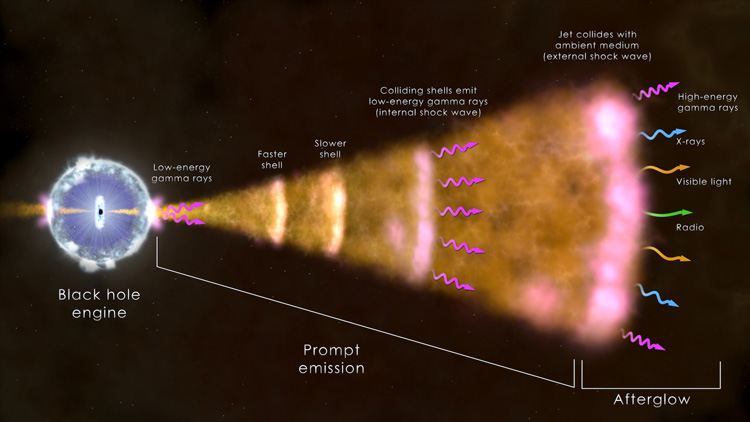-
James Webb Space Telescope sees Jupiter moons in a new light
July 27, 2023
University of California, Berkeley astronomers used the James Webb Space Telescope (JWST) to reveal new details of Jupiter's moon, Io. Read More...
More -
When ET calls, can we be sure we’re not being spoofed?
July 24, 2023
University of California, Berkeley scientists are part of a team that has devised a new technique for finding and vetting possible radio signals from other civilizations in our galaxy — a major advance in the search for extraterrestrial intelligence (SETI) that will significantly boost confidence in any future detection of alien life. Read More...
More -
After 15 years, pulsar timing yields evidence of cosmic gravitational wave background
June 29, 2023
University of California, Berkeley Astronomy research groups lead by Professor Chung-Pei Ma and Assistant Adjunct Professor Luke Zoltan Kelley have just published papers supporting the widespread conclusion that the universe is full of low frequency gravitational waves. Read More...
More -
UC Berkeley Astronomy Honors the Lives of Two Former Faculty: Leo Blitz and Frank Shu
May 19, 2023
In Memoriam Leo Blitz University of California, Berkeley Professor of Astronomy 1981-2022 Leo Blitz passed away on Dec 20, 2022. Obituary for Leo Blitz Memorial Site for Leo Blitz: https://www.kudoboard.com/boards/wwZyag8O In Memoriam Frank Shu University of California, Berkeley Professor of Astronomy 1973-2002 Frank Shu passed away on April 22, 2023. Obituary for Frank Shu http://memorial.asiaa.sinica.edu.tw/frankshu/msg4news.html Memorial Site for Frank Shu http://memorial.asiaa.sinica.edu.tw/frankshu/wall.html
More -
M87 in 3D: New view of galaxy helps pin down mass of the black hole at its core
April 17, 2023
A new, highly detailed analysis of the motion of stars in the giant elliptical galaxy M87 has been used to determine the mass of the supermassive black hole at the galaxy's center. Read More...
More -
Bright gamma ray burst confounds models of black hole birth
March 28, 2023
Last October, following one of the brightest flashes of gamma rays ever observed in the sky, telescopes around the world captured a wealth of data from an event that is thought to herald the collapse of a massive star and the birth of a black hole. Raffaella Margutti, associate professor of astronomy and of physics at the University of California, Berkeley, notes that the data demonstrated that our models of such events are woefully inadequate. Read More...
More -
Cal scientists star in Webb Telescope exploration
February 7, 2023
Cal scientists star in Webb Telescope exploration (OFFSITE LINK)
More -
Were galaxies much different in the early universe?
January 24, 2023
An array of 350 radio telescopes in the Karoo desert of South Africa is getting closer to detecting “cosmic dawn” — the era after the Big Bang when stars first ignited and galaxies began to bloom. Joshua Dillon, a research scientist in the University of California, Berkeley’s Department of Astronomy is lead author on a new paper describing a twofold increase in the sensitivity of the Hydrogen Epoch of Reionization Array (HERA). Read More...
More -
Webb Space Telescope, Keck team up to study Saturn’s moon Titan
December 1, 2022
UC Berkeley astronomer Imke de Pater is part of a team that is using combined observations with the Webb Space Telescope and the Keck telescopes to study the weather patterns on Saturn's moon Titan. Read More...
More -
Chrysalis, the lost moon that gave Saturn its rings
September 23, 2022
A team including Burkhard Militzer, UC Berkeley professor of earth and planetary science and astronomy, has proposed a detailed theory that explains the origin of the rings of Saturn. Read more...
More










